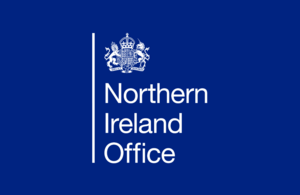Appointment of new Policing Board members announced Secretary of State
Secretary of State appoints new members to the Northern Ireland Policing Board

The Secretary of State for Northern Ireland, the Rt. Hon Karen Bradley MP, today announced the reconstitution of the Northern Ireland Policing Board, by formally appointing both independent and political members. In the absence of Northern Ireland Ministers, these appointments were made possible by the Northern Ireland (Executive Formation and Exercise of Functions) Act 2018, which received Royal Assent on 1 November.
The new independent members will be Tom Frawley, Doug Garrett and Colm McKenna. They will take up office on 1 December 2018 and will join the existing six other independent members who will continue to serve until June 2019.
Following nominations by the NI parties, the following political members of the Board have also been appointed:
DUP - Keith Buchanan, Joanne Bunting, Gary Middleton, Mervyn Storey
Sinn Fein -Gerry Kelly, Linda Dillon, Philip McGuigan
Alliance - John Blair
SDLP - Dolores Kelly
UUP - Alan Chambers
Mrs Bradley said :
I am pleased to make these appointments to the Northern Ireland Policing Board to ensure that this important body can get back to work.
The Policing Board has a unique role in that it has primacy for policing accountability, but it also has an important advocacy role to play on issues that contribute to police service effectiveness, efficiency, partnership working and overall good policing. I am confident these new appointments will enhance the Board’s ability to fulfil this role.
In October 2018, I introduced the Northern Ireland (Executive Formation and Exercise of Functions) Act 2018. The legislation enabled me to make key public appointments to a number of bodies including the Northern Ireland Policing Board.
Whilst I am pleased to announce these appointment and we will continue to make the necessary interventions to ensure good governance and the delivery of public services, this can never be a substitute for local decision making. It would be much better for devolved Ministers to be in place to make these decisions - including on key public appointments.
That is why I will be engaging the parties urgently, along with the Tanaiste in line with the well-established three stranded approach, to work to find a solution that gets the Executive restored and delivering for the people of NI.
NOTES FOR EDITORS
The Northern Ireland Policing Board
The Policing Board takes its powers from the Police (Northern Ireland) Act 2000 as amended by the Police (Northern Ireland) Act 2003 and has 19 members in total: 10 political and 9 independent members, including a Chair and a Vice Chair appointed by the Board from among the independent members.
Following the Assembly election in March 2017, as a result of an NI Executive not being formed and no Justice Minister being appointed, Members could not be appointed to the Policing Board. In October 2018, the Secretary of State for NI introduced legislation in Parliament; the Northern Ireland (Executive Formation and Exercise of Functions) Act 2018 received Royal Assent on 1 November. This legislation provides for the appointment of members to the Board by the Secretary of State.
Under paragraph 7 of Schedule 1 to the Police (Northern Ireland) Act 2000, the parties’ allocations of political members are determined in proportion to the number of MLAs elected in the most recent Assembly election, using the d’Hondt formula. Following the 2017 election, these allocations are 4 DUP; 3 SF; 1 UUP; 1 SDLP; 1 Alliance.
More information can be found on the Policing Board website
Terms of appointment
The independent positions are part-time appointments.
The independent Board member positions attract a fixed remuneration of £15,000 per annum for a minimum commitment of four days per month, including evening or weekend events.
Biography of Appointees
Tom Frawley
Most recently, Dr Frawley was the Northern Ireland Ombudsman and Commissioner for Complaints. Previously he was the Chief Executive of the Western Health and Social Services Board for 20 years. He is also a member of the Audit Committee for the Irish Ombudsman and Information Commissioner, €282.79 per meeting; and that of the Welsh Public Services Ombudsman, £311 per meeting.
Doug Garrett
Mr Garrett was CEO of the Blackpool Regeneration Company, and a non-executive Director of Blackpool Hospital Trust. He also worked with communities and partnerships in Belfast as Operations Director at Laganside Corporation. He holds no current public appointments.
Colm McKenna
Mr McKenna worked in the financial sector for 30 years before moving to boardroom leadership positions the public sector in 2008. He has broad experience across a range of government delivery systems including Health& Social Care, NI Assembly Administration, Urban Regeneration, Agricultural Science, Food Safety and Standards Regulation, Economy and Justice. He was also Chairman of the NI Public Sector Chair’s Forum until September 2018. He is currently Chairman of the NI Food Advisory Committee and a NED and Chairman of the Audit and Risk Assurance Committee of Food Standards Agency(£21,740). He has been Chairman of the South Eastern Health and Social Care Trust (£29700 pa) for over 10 years and Chairman of Agri Food and Biosciences Institute (£26,300) for almost 5 years and will shortly be standing down from these positions.
CPANI Code of Practice
The appointment process for the new independent members has been regulated by the Office of the Commissioner for Public Appointment NI (CPANI) and the appointments have been made in accordance with the CPANI Code of Practice.
Political Activity
All appointments are made on merit and political activity plays no part in the selection process. However, the Commissioner for Public Appointments for Northern Ireland requires the political activity of appointees to be published.
None of the independent members appointed have declared political activity in the past ten years.
Statutory Requirements
The appointment of independent members is made by the Secretary of State with regard to the equality provisions set out in section 75 of the Northern Ireland Act 1998 and Schedule 1 to the Police (Northern Ireland) Act 2000.